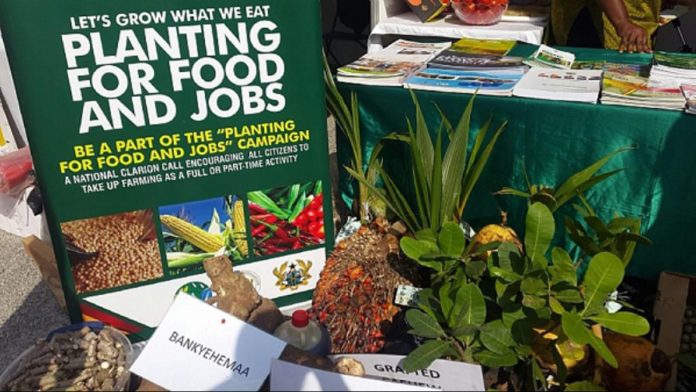News in Brief:
– Ghana has launched the registration for Planting for Food and Jobs Phase II, aiming to improve the country’s agricultural sector.
– This program focuses on a value chain approach, including aspects like credit access, storage facilities, market connections, and digitalisation.
Ghana’s Ministry of Food and Agriculture has opened registration for the second phase of its Planting for Food and Jobs (PFJ 2.0) project which aims to strengthen the nation’s agricultural sector.
Building upon the successes of the initial program, PFJ 2.0 adopts a value chain approach, encompassing several key areas. It will attempt to improve all the mechanisms that go into producing food.
- Input credit system: Facilitates access to necessary financial resources for farmers.
- Storage and distribution infrastructure: Enhances post-harvest handling and product movement.
- Off-take agreements/commodity trading: Connects farmers with buyers, ensuring market access.
- Digitised platform: Streamlines communication and information sharing.
- Line of sight management and coordination: Provides improved oversight and implementation.
The ministry also announced eligibility requirements for intending participants, including:
- Possession of land suitable for farming.
- Completion of a profile registration process at the district level.
- Ability to provide farm/land coordinates.
- Ghanaian citizenship with a valid Ghana Card.
- Focus on cultivating prioritized crops as designated by the program.
- Legal registration for companies or institutions involved.
- Furthermore, guidelines have been issued with regards to the registration Process.
- Intending participating farmers can register through their local Agricultural Extension
- Agent (AEA) at the District Department of Agriculture.
Meantime, the PFJ 2.0 programme seeks to achieve agricultural modernisation and growth by implementing advancements in farming practices and technologies. It also has sight on enhanced food security through increased domestic food production and reduced reliance on imports.
The project aims to strengthen the country’s agricultural sector through fostering a more robust and sustainable agricultural ecosystem in Ghana.
This initiative highlights the government’s commitment to addressing food security concerns and promoting the nation’s agricultural development.



